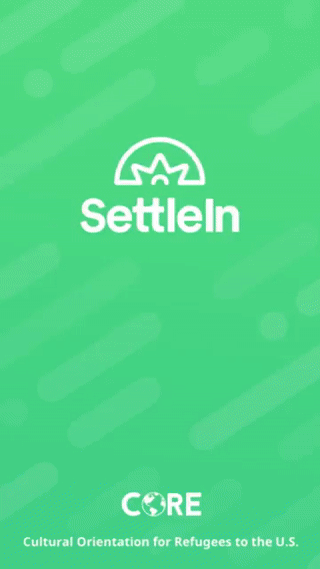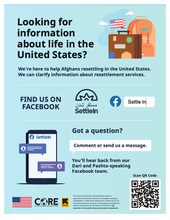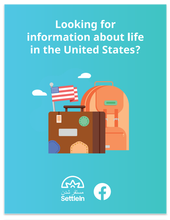
Settle In Facebook, an initiative launched by the Cultural Orientation Resource Exchange (CORE) in September 2021, engages newly arrived Afghans resettling in the United States in an interactive format. This free and publicly available resource connects new arrivals to vital information tied to early resettlement services, employment, housing, education, and healthcare.
Interactive Format

Users can view regular page updates, chat with experienced Dari and Pashto-speaking community liaisons, and attend Facebook Live events on cultural orientation topics. Past Facebook Live events include:
- Driving in the United States
- Working with resettlement agencies
- Afghan Placement and Assistance program
- COVID-19 Testing
Incorporating Health Education
NRC-RIM is proud to partner with the International Rescue Committee (IRC) to support this effort by providing health education content in Dari and Pashto. SettleIn has also covered other health topics, including:
- Lead poisoning
- Mental health
- Mpox
- RSV
- Navigating the U.S. healthcare system
- Keeping children healthy and safe for school
Spreading the Word
For more information and to share this content with others, follow the page and download these materials:
About the partners
CORE connects and supports refugee resettlement staff globally to deliver effective Cultural Orientation, which helps refugees and Special Immigrant Visa holders achieve self-sufficiency in the United States.
IRC is a global humanitarian aid, relief, and development nongovernmental organization whose work spans more than 40 countries. In the U.S., IRC works in 26 cities across 15 states to create opportunities for refugees, asylum-seekers, and other vulnerable migrants to survive and thrive.
NRC-RIM is funded by the CDC to support health departments and community organizations working with refugee, immigrant, and migrant communities that have been disproportionately affected by health inequities.

